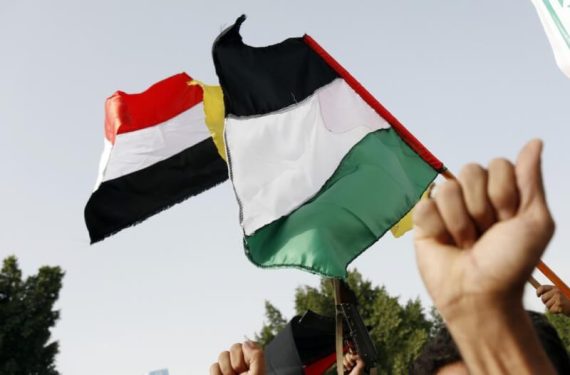I
n a significant development, Yemen’s Houthi militia claimed responsibility for attacks on Israel on October 31 and November 1, 2023. The group announced that it had launched a “large batch” of ballistic missiles, cruise missiles, and drones towards various Israeli targets.
According to Yahya Sarea, the Houthi military spokesperson, this attack was in response to the “brutal Israeli-American aggression” observed in Gaza. He also emphasized that the attack on October 31 marked their third operation to express solidarity with the Palestinians and warned of further missile and drone assaults in the future.
The Israeli military confirmed that its aerial defense system successfully intercepted a surface-to-surface missile originating from the Red Sea area. It was also reported that several other “aerial threats” were neutralized, ensuring none entered Israeli territory.
Growing capabilities of the Houthi
Although the Israeli military did not attribute the attack to any particular group, a senior official from the U.S. Department of Defense, choosing to remain anonymous, indicated that missiles launched from Yemen were intercepted by the Israeli defense systems.
Analysts highlighted that despite the foiling of the attack, it underlines the growing capabilities of the Houthi group. The group, supported by Iran, took control of the Yemeni capital, Sana, in 2014 and has since become a vital component of Iran’s “Axis of Resistance.”
Ahmed Nagi, a senior Yemen analyst at the International Crisis Group, expressed that the Houthis’ involvement in the conflict delivers a distinct message to Israel, suggesting the rise of a new adversary in the region.
The Houthis as a new threat
Over the years, the Houthi group has increasingly supported the Palestinian cause and has consistently demonstrated animosity towards Israel. With the ongoing genocide in Gaza escalating, Houthi leadership has reiterated their willingness to join the fight.
Israel has gradually started to perceive the Houthis as a credible threat, leading to measures such as deploying the Iron Dome batteries near the southern town of Eilat in anticipation of potential retaliatory actions.
Despite these advancements, the extent to which the Houthis pose a substantial threat to Israel remains uncertain. Given the disparity in military capabilities, experts believe Israel maintains a significant edge.
The conflict’s asymmetry is further emphasized by statistics. Between 2015 and 2021, Saudi Arabia reported thwarting over 1,000 missiles and drones launched by the Houthi group, resulting in approximately 120 casualties. In comparison, airstrikes from the Saudi-led coalition in Yemen, aided by the U.S., have caused over 20,000 casualties.
The international community watches closely as the tensions escalate in Gaza, with concerns growing over a broader regional conflict.
Sources: The Associated Press and the New York Times
Recommended





